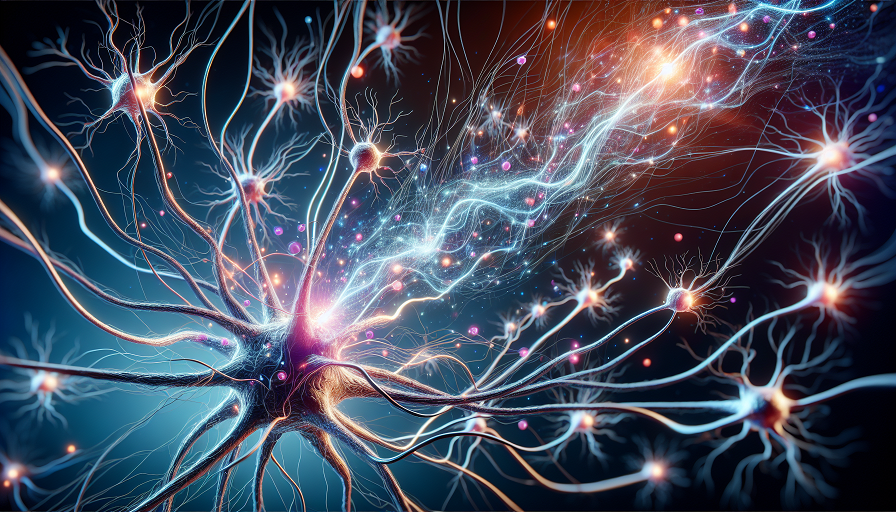
In today’s hyper-connected culture, maximizing mental performance is more important than ever. Whether you’re a student, a professional, or pursuing a challenging hobby, understanding cognitive load and mental stamina can help you improve your productivity and reach your goals. Here we look at what these terms mean and explore strategies to give your brain the boost it needs for high performance.
Contents
Understanding Cognitive Load
Cognitive load refers to the amount of mental effort being used in the working memory. Think of it like the capacity of your brain’s “processor.” Just as a computer has limits, so does our mind. When we are trying to handle too much information at once, we might feel overwhelmed or struggle to keep up. This condition is similar to calling too many tasks on a computer at once, which slows down everything. Understanding how to manage cognitive load is crucial not only to enhancing performance but also to maintaining good mental health.
The concept of cognitive load can be broken down further into three types: intrinsic, extraneous, and germane load. Intrinsic load is related to the difficulty of the task itself. For example, solving a complex math problem requires more intrinsic load than naming the capitals of well-known countries. Extraneous load involves how information is presented to us, and reducing it often makes tasks easier to understand, while germane load refers to the work put in to create a deeper understanding of the material. Balancing these three can help manage cognitive demands.
Boosting Mental Stamina
Mental stamina, on the other hand, is akin to physical endurance but for your brain. It’s the ability for your mind to continue functioning at a desired level over long periods. Just like how athletes train to enhance their physical stamina, you can also cultivate your mental endurance.
Start by gradually introducing challenging activities to stretch your brain’s capabilities over time. Reading, puzzles, and learning new skills are excellent exercises to build this endurance. Also, regular practice helps create lasting improvements. Think of mental stamina as a muscle that grows stronger with use but also requires rest and recovery, ensuring it’s not overworked and remains effective.
Effective Techniques for Improving Both
Mindfulness and Meditation
One of the most effective methods to enhance both cognitive load management and mental stamina is through mindfulness and meditation. By practicing being present in the moment and being aware of your thoughts and feelings without judgment, you can reduce stress and improve focus, allowing for better handling of information and tasks.
Meditation, whether it’s just a few minutes of deep breathing or longer sessions, has been shown to physically change the structure of the brain, improving functions like attention and reducing the strain of cognitive overload. Over time, this practice can enhance your mental stamina, supporting long periods of focused work without burnout.
Physical Exercise
Physical activity isn’t just good for the body; it’s also excellent for the brain. Regular exercise increases blood flow and oxygen to the brain, which can boost cognitive abilities and improve both concentration and mental stamina. Studies find that people who engage in physical activities, such as running, swimming, or even brisk walking, tend to perform better in cognitive tasks.
Furthermore, exercise releases endorphins, which are chemicals in the brain that act as natural painkillers and mood elevators, thereby reducing stress and promoting a clearer, more focused mind. Consistency is key here; regular, moderate exercise is more beneficial than sporadic, intense workouts.
Diet and Nutrition
A balanced diet plays a crucial role in brain health, influencing cognitive load and mental stamina alike. Foods rich in Omega-3 fatty acids, antioxidants, and vitamins are particularly beneficial. These nutrients combat oxidative stress, sustain energy levels, and support overall brain function.
Including an array of fruits, vegetables, nuts, and fish could assist in keeping your brain sharp. Hydration is equally important, as even mild dehydration can impact your attention span and cognitive performance. So, drink plenty of water throughout the day.
Nootropics and Brain Supplements
As an addition to healthy diets, nootropics or brain supplements are gaining popularity for their potential in boosting cognitive performance. These supplements come in various formulations, often containing ingredients like caffeine, ginseng, or omega-3s, which are meant to enhance brain functions such as memory, focus, and alertness.
However, it’s important to approach these with caution. While some people report benefits, the effectiveness of brain supplements can vary greatly between individuals. Furthermore, the safety and long-term effects of many nootropic supplements haven’t been fully evaluated. Consulting with a healthcare professional before starting any new supplement regimen is always a wise choice.
Practical Tips for Everyday Mental Performance
Here are some simple, effective strategies you can incorporate into your daily life to enhance cognitive load management and boost mental stamina:
- Break tasks into smaller, more manageable steps to prevent feeling overwhelmed.
- Establish a routine to maximize productivity and allow for predictable mental rest periods.
- Prioritize sleep, as adequate rest is crucial for maintaining cognitive performance and mental stamina.
- Engage in brain-stimulating activities regularly, like puzzles or reading, to keep your mind sharp.
Life can be demanding, but understanding how to manage cognitive load and bolster mental stamina can make a world of difference. With the right techniques and a balanced approach, anyone can improve their mental performance and thrive even in high-pressure environments.

